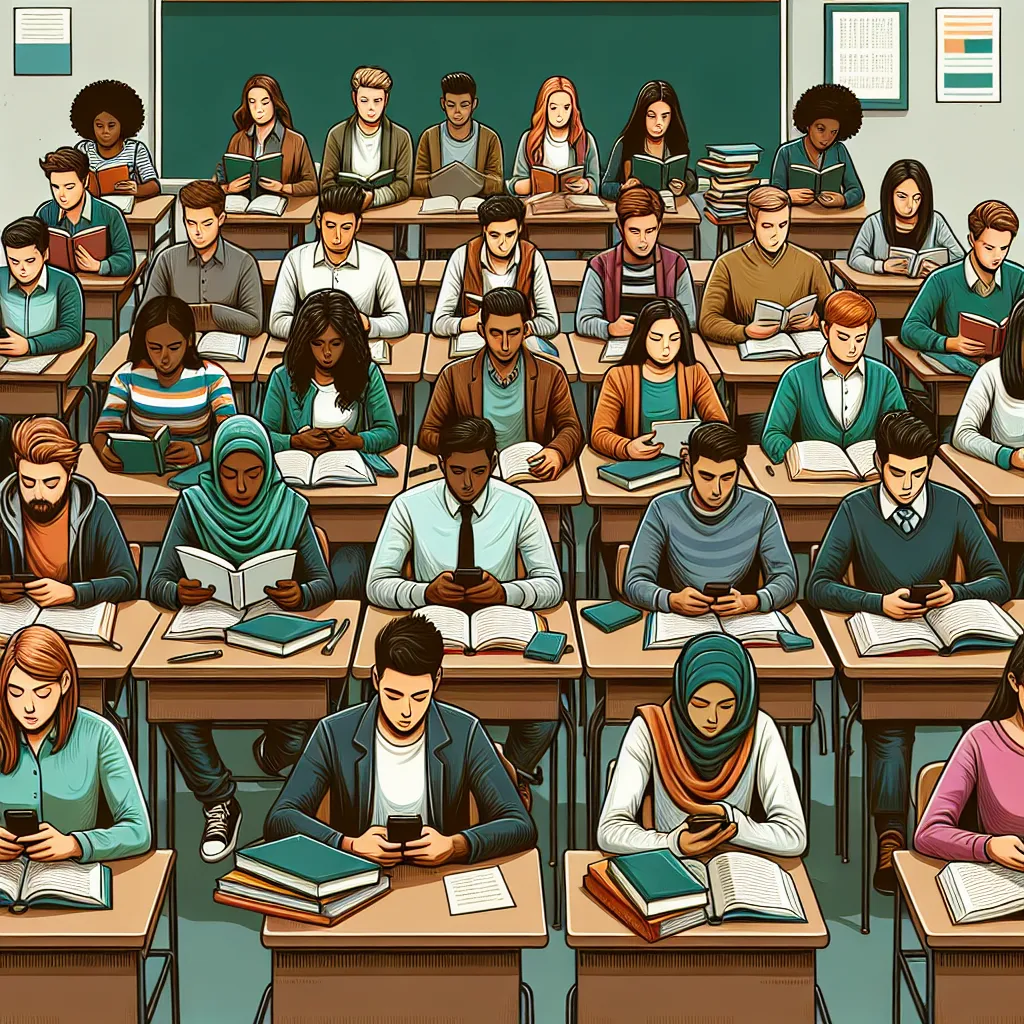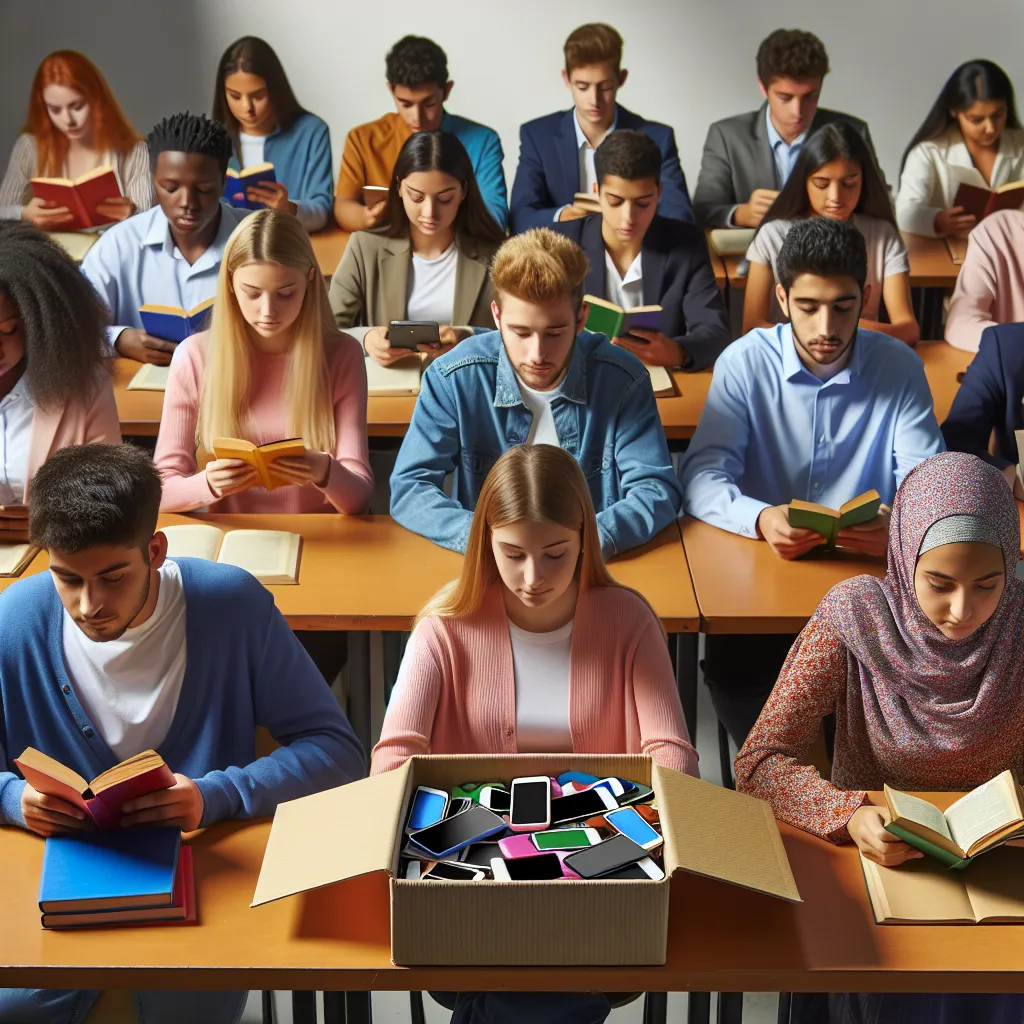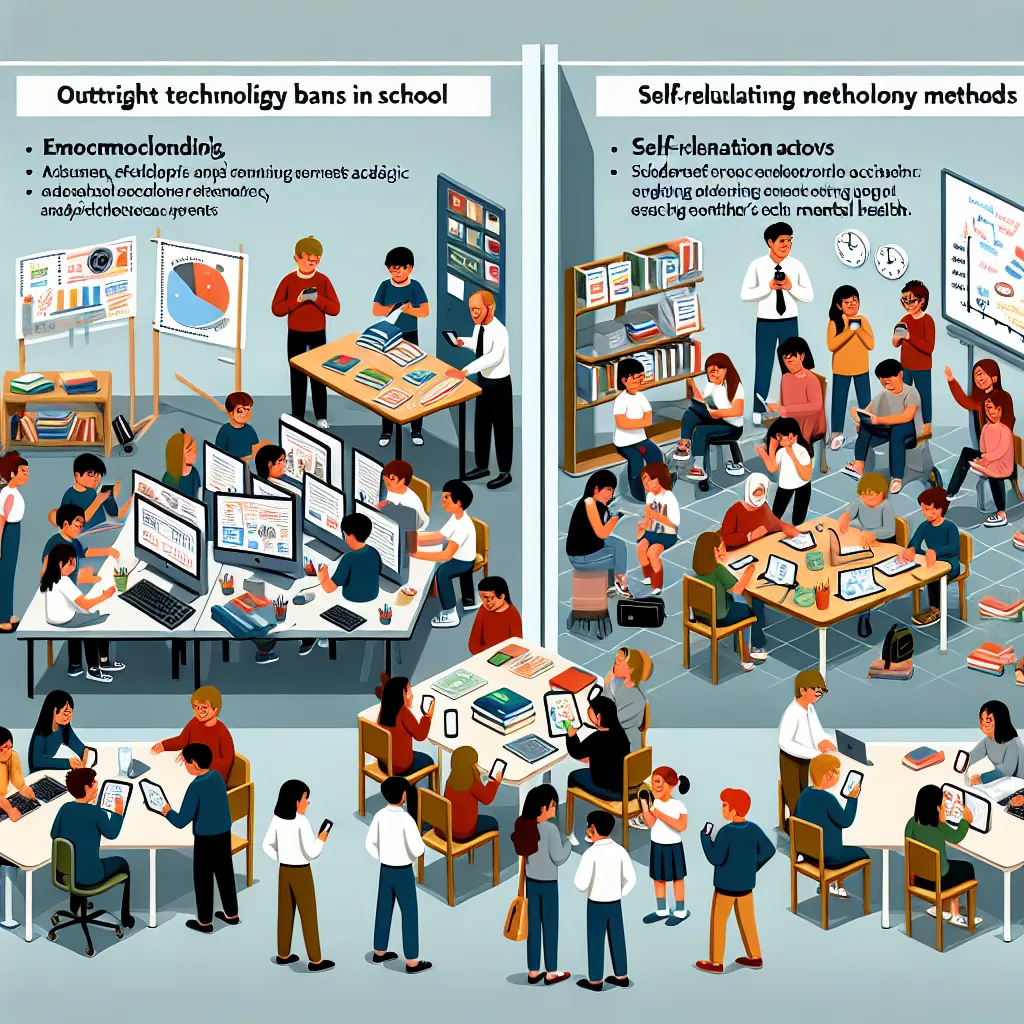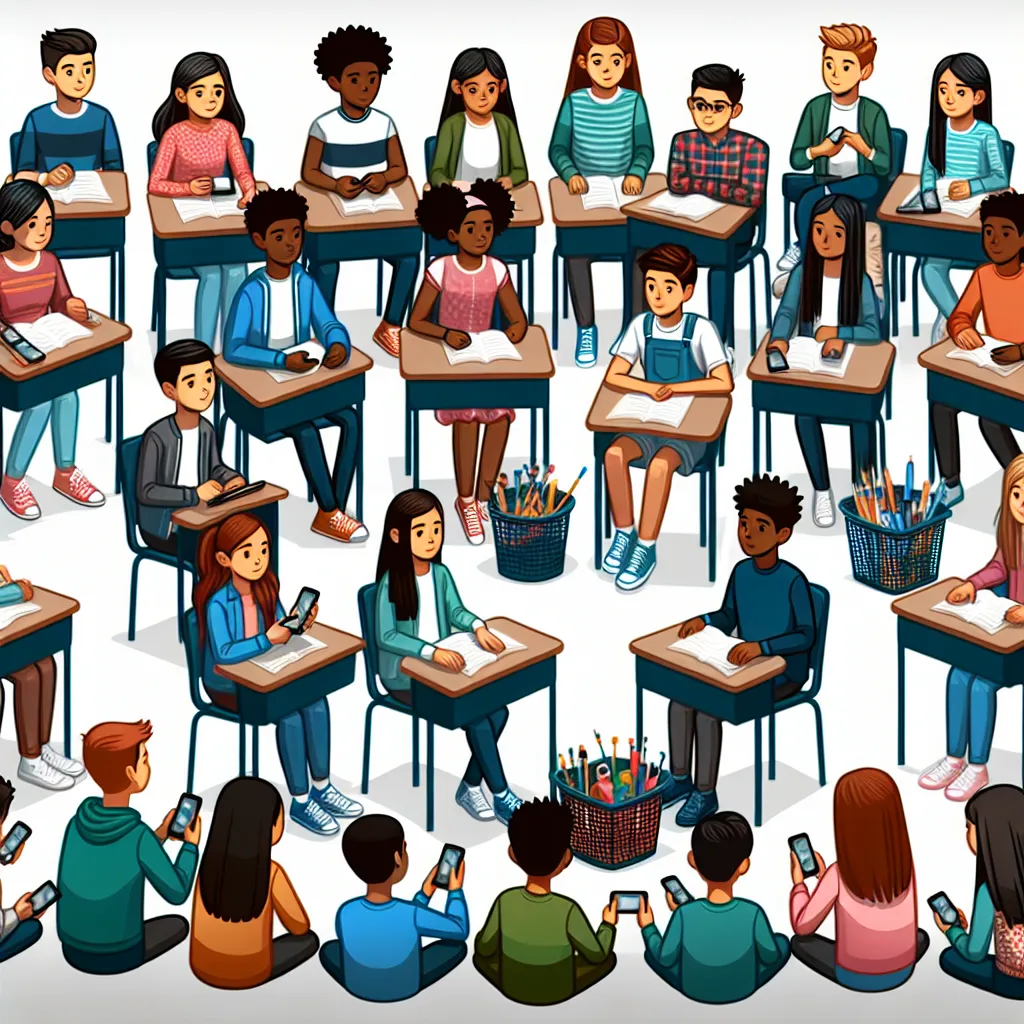Ask AI on The Internet
Question: One of the first-year-student orientation initiatives at a local university is to collect incoming students’ cell phones and keep them for 48 hours. The purpose of the initiative is to give students an opportunity to integrate into their new school culture and make friends on campus. Carefully consider the effects of this initiative and the extent to which they might support, complicate, or contradict its intended goals. Write an essay that argues your position on the advisability of the 48-hour cell phone ban. In your response you should do the following: Respond to the prompt with a thesis that presents a defensible position. Provide evidence to support your line of reasoning. Explain how the evidence supports your line of reasoning. Use appropriate grammar and punctuation in communicating your argument.
### Thesis: The 48-hour cell phone ban for incoming first-year students at the university, though well-intentioned in encouraging social integration and assimilation into campus life, is inadvisable. This policy introduces significant risks and complications, such as increased anxiety and impediments to crucial communication, which ultimately outweigh its intended benefits. ### Argument: #### Complication 1: Increased Anxiety and Stress Removing students' cell phones for 48 hours can exacerbate their anxiety and stress levels, which are already heightened during the transition to university life. Cell phones are not merely tools for social media but are critical means of maintaining contact with family and loved ones, offering emotional support during this crucial period. Research indicates that maintaining communication with support networks significantly alleviates stress and feelings of loneliness in first-year students (Hoffner, 2015). By cutting off this vital link, the policy could inadvertently make students feel isolated, counteracting the goal of making them feel integrated and comfortable in their new environment. #### Complication 2: Impediments to Safety and Accessibility Cell phones play an essential role in personal safety. In an unfamiliar setting, students might need immediate assistance or directions, and depriving them of their phones could leave them vulnerable. Furthermore, students with disabilities or medical conditions rely on their devices for various accessibility purposes, from navigating campus to managing health issues. An inflexible 48-hour cell phone ban would unfairly disadvantage these students and could even pose serious health risks. The constant connectivity provided by cell phones allows for rapid response in emergencies, a critical feature especially pertinent in large university campuses. #### Complication 3: Alternative Paths to Integration While the ban's objective—to foster face-to-face interaction and immersion in campus culture—is commendable, less draconian methods could achieve similar outcomes without the associated negatives. Universities could organize structured social events, workshops, and activities designed to encourage interaction without coercion. Orientation leaders and peer mentors can play active roles in facilitating friendships and helping students navigate their new environment. By their very nature, such initiatives focus on inclusion and relationship-building while respecting personal autonomy. #### Supporting Evidence: Technological Dependency and Adaptation It is important to acknowledge that students today have grown up with technology deeply integrated into their daily lives. Studies have shown that while excessive screen time can have negative effects, moderate and intentional use of technology can promote social connection and access to resources (Turkle, 2015). Thus, a policy that acknowledges and incorporates students' dependence on their phones in a balanced manner would be more effective than one that attempts to abruptly sever this connection. ### Conclusion: While the 48-hour cell phone ban aims to foster social integration and friendship among incoming university students, it ultimately presents more complications than benefits. By introducing unnecessary stress, potentially endangering personal safety, and failing to consider the nuanced role of technology in students' lives, the policy detracts from its noble intentions. Universities should consider alternative strategies that promote face-to-face interaction and immersion without resorting to restrictive measures. Such balanced approaches would be more consistent with the diverse needs and realities of the student population, thereby better fostering a welcoming and supportive campus environment.
Title: The Implications of the 48-Hour Cell Phone Ban on University Students Introduction Given the rising concern about technology's influence on interpersonal communication, especially among young people, the 48-hour cell phone ban initiative for first-year students at the local university is, on the surface, a well-intentioned one. Designed to engender a more hands-on orientation process, this plan aims to promote social integration among new students, thereby fostering an organic and robust community spirit. However, this initiative could generate unforeseen and potentially negative repercussions on both the students’ social integration and their immediate safety needs. My stance is that this policy, while it has its merits, requires thorough reconsideration before implementation. Evidence and Reasoning Firstly, it is well-documented that digital technology plays an integral role today in fostering relationships. While the cell phone ban aims to foster face-to-face interactions, it overlooks the fact that communication has evolved significantly. According to a 2018 Pew Research Center study, a significant portion of teenagers (57%) have made new friends online, largely through social media platforms. By denying new students access to these platforms, the ban could inadvertently inhibit their primary mode of forming relationships. Moreover, the ban could unexpectedly create social isolation for those who struggle with face-to-face communication. For introverted students and those with social anxiety, digital platforms can serve as a stepping-stone to build relationships without the intense pressure of personal interaction. By implementing a blanket ban on cell phones, the initiative might unwittingly alienate some students and make their integration into the new environment an even more daunting task. Secondly, safety is a pertinent concern. Cell phones serve a dual function in modern society; they are not only communication devices but also safety tools. By taking away the students' cell phones, the university effectively places them in a vulnerable position. They would be unable to quickly reach out to family, friends, or security services if they face problems or emergencies. This could generate a significant amount of distress and concern for both students and their families. Conclusion While the motivation behind the 48-hour cell phone ban – fostering stronger social integration – is commendable, its potential negative implications must not be dismissed. From limiting modern communication norms to potentially jeopardizing safety, the proposed ban carries probable repercussions that could undermine its stated goals. As such, the university should thoroughly review this initiative, considering these factors, to build a more inclusive, safe, and effective approach towards achieving social integration.
Think your answer is better than the AI's? Post it below.
Other Most Relevant Posts:
Question Tags
If you want your question answered by an AI, click here.







Post your own comment: